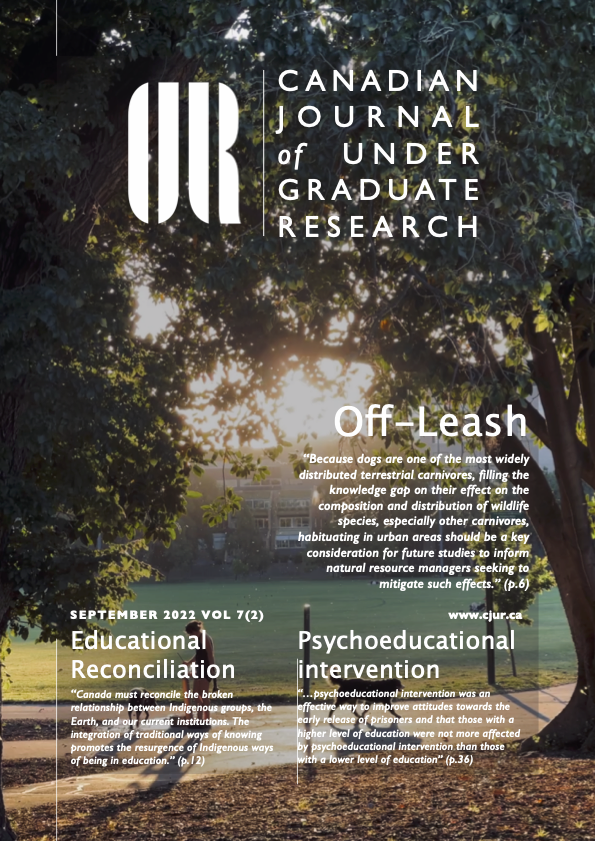Uncontrolled dog activity and problem areas in urban parks
Abstract
Domestic dogs are a significant, but poorly recognised, threat to native wildlife inhabiting natural environments within urban areas. The main driver of dog abundance and habitat use is human presence. The objective of this study is to determine the level of uncontrolled dog activity (off-leash, without human accompaniment) in on-leash designated areas within the City of Calgary, to identify off-leash problem areas, and to provide recommendations to parks management on how to reduce the impacts of domestic dogs on wildlife in city parks. There was a lot of documented off-leash dog activity in all natural areas with camera traps, and the majority occurred in on-leash areas. A large portion of uncontrolled dogs occurred within 250 m of off-leash designated areas (the majority occurring within 50 m), suggesting that a lack of public awareness of where off-leash areas end and on-leash areas begin may be contributing to the high off-leash rates. The results also suggest that dog owners behave similarly with respect to dog leashing regardless of leash rules. An increased vigilance by the city and increased public awareness of the effects that domestic dogs have on wildlife, through means such as signage in problem areas, could help to decrease the number of off-leash dogs in on-leash designated areas and the effects that dogs have on wildlife in Calgary.
Published
Issue
Section
License
Authors who publish with this journal agree to the following terms:
- Authors retain copyright and grant the journal right of first publication with the work simultaneously licensed under a Creative Commons Attribution License that allows others to share the work with an acknowledgement of the work's authorship and initial publication in this journal.
- Authors are able to enter into separate, additional contractual arrangements for the non-exclusive distribution of the journal's published version of the work (e.g., post it to an institutional repository or publish it in a book), with an acknowledgement of its initial publication in this journal.
- Authors are permitted and encouraged to post their work online (e.g., in institutional repositories or on their website) prior to and during the submission process, as it can lead to productive exchanges, as well as earlier and greater citation of published work (See The Effect of Open Access).

